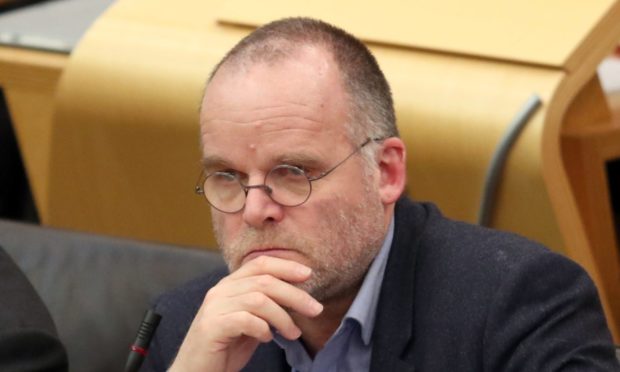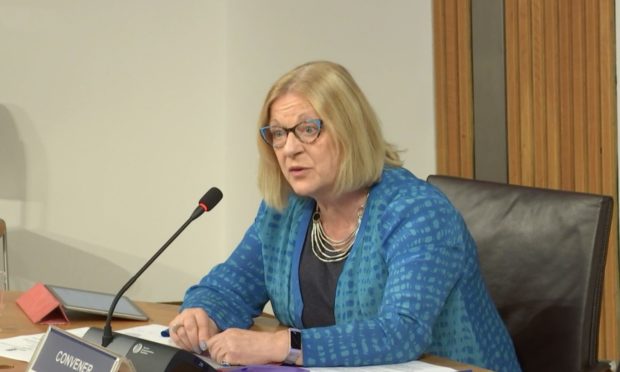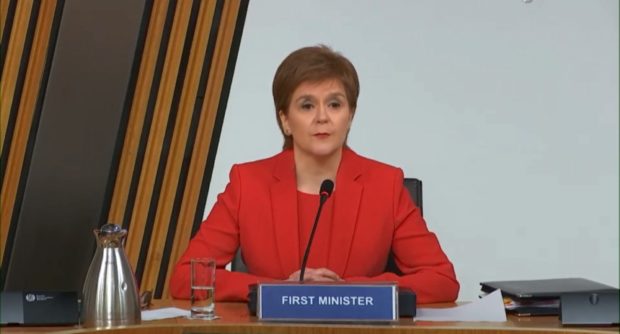Andy Wightman, a key member of the Holyrood probe into the handling of allegations against Alex Salmond, has criticised the process.
Andy Wightman, an independent MSP, said it was “not the way in which to do an inquiry of this nature”.
He also outlined “a better way”, including appointing an independent team of investigators, with powers to obtain documents, that could advise MSPs.
Mr Wightman’s vote has often been viewed as decisive on a committee that has regularly divided along party lines.
In an exclusive interview, he admitted the last few months had been “very difficult” personally, with “lots of wild allegations and speculation” being made about his role.
The Lothian MSP, who quit the Scottish Greens in December and will stand as an independent in the Highlands and Islands in the upcoming election, called for changes to the process in future.
The way we went about doing it is not the right way to go about.”
Parliamentary inquiry
The committee on the Scottish Government handling of harassment complaints was set up after a successful judicial review by Mr Salmond resulted in a Scottish Government investigation into him being ruled unlawful and “tainted by apparent bias”, with a £512,250 payout being awarded to the former first minister for legal fees in 2019.
Mr Salmond was separately cleared of all charges against him after a criminal trial last year.
Mr Wightman said: “The way we went about doing it is not the right way to go about it.
“What we did was set up a parliamentary inquiry and said, ‘well, this committee will find out what went wrong’.
“Now what’s the first thing we need to do? We need to get lots of information. What happened there?
Need for ‘protocol’
“The government stalled and delayed, and wouldn’t give us the key stuff, the legal advice, until 6pm the night before Sturgeon appeared, and even then it came out in dribs and drabs the week after.
“That is not the way in which to do an inquiry of this nature.”
Mr Wightman joined the committee as a substitute member when Scottish Green MSP Alison Johnstone left.
He said there should be a “protocol” between the government and parliament for the investigation of “major failings”, such as the loss of the judicial review or a significant overrun on a construction contract, for example.
All the evidence could be published by the government on a “portal” in an “orderly and concise” way.
Mr Wightman said: “And then the government says to parliament, if you want to scrutinise that, be my guest. Here is all the information. Set up a committee inquiry and you can scrutinise it all.
“That would have been the way to do it.”
‘Some high politics’
He added: “Because, really, for the committee to do its job we really should have been able to appoint an investigator, one person or perhaps a team of two or three who had legal powers to obtain documents, and could investigate the facts – the what, who, where, why, when stuff.
“As professionals what they would do is produce a confidential report to the committee, mapping out the whole landscape, and saying ‘my suggestion is you look here at that critical point’, and ‘here’s how you should go about doing that investigation’.
“We didn’t even have a special adviser on the committee.”
Reflecting on the process, Mr Wightman said: “This has been a complicated, complex inquiry, because it has engaged very sensitive issues around sexual harassment and how you deal with complaints and resolve them.
“It has involved Scotland’s most high-profile politicians, Mr Salmond and his successor, the first minister.
“It has involved litigation that was civil, in terms of the judicial review, and criminal.
“So it has just got all the ingredients. It’s a complicated story, and overlaying all that is some high politics.”


